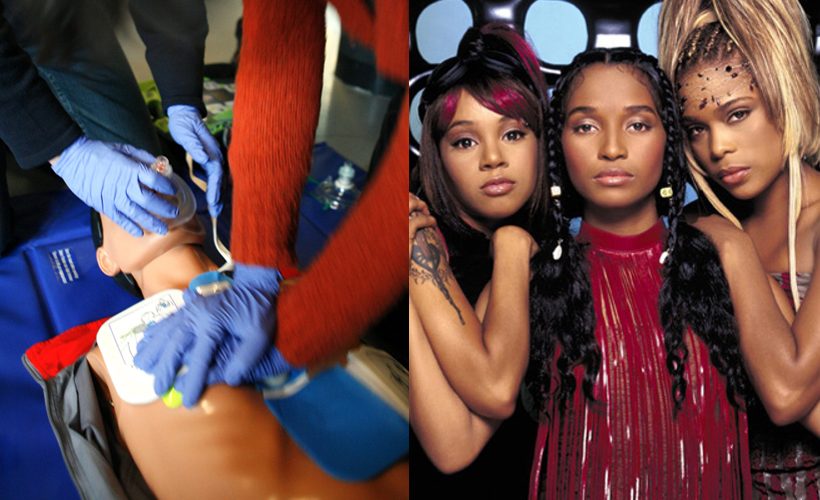According to a new study published by the American Heart Association, cardiopulmonary resuscitation is 8% more effective when done to hit R&B song “Creep” from TLC’s iconic sophomore album CrazySexyCool.
The first part of the study looked at instances where the emergency procedure was used by CPR-certified individuals who used the Bee Gees 1977 hit ‘Stayin’ Alive’ as a way to remember the compression-ventilation ratio. The second part of the study analyzed the CPR simulation learning courses that taught those taking the course to give chest compressions to the beat of TLC’s ‘Creep’.
Lead author, Lilith Wenz, was shocked by the findings.
“The data definitely seemed to show that 8% more people survive when a person compresses to the beat of TLC’s catchy song ‘Creep’,” says Wenz. “Who knew a song based on TLC member Tionne ‘T-Boz’ Watkins’ experience with infidelity would save so many lives.”
The data speaks for itself, proving that the Bee Gees’ song was doing a disservice to those needing this lifesaving technique.
“It’s extremely unsettling that medical professionals chose the Bee Gees’ song due to its punny nature as opposed to a piece that actually has the correct tempo to perform chest compressions to,” says Wenz. “We’re proud to say that since this study we’ve made learning the song ‘Creep’ a requirement in our national CPR programming.”
Now in CPR certification courses, trainees go through a manual with instructors, watch demonstrative clips of the rescue process, then individually sing karaoke to ‘Creep’ before practicing compressions on dummies.
“Oh, ah, oh ah, oh ah yeah (creep), oh ah, oh ah, oh ah yeah,” sings Wenz. “We want compressions on ‘ah’, ‘yeah’ and ‘creep’ before hitting ‘so I creep, yeah’ and ‘just creepin’ on.’”
“This study means that now 82% of people who suffer from cardiac arrest die after CPR,” she added. “Before using this 1994 funky hit in training, that number was 90%. Our findings make me want to dance around in blue silk pajamas, similar to the way that the groundbreaking musical trio did in 1994.”
While you’ll be more likely to survive with this method, studies have also shown that several victims have said they were “shocked,” “surprised,” and “why are you singing that song right now” just after regaining consciousness.




